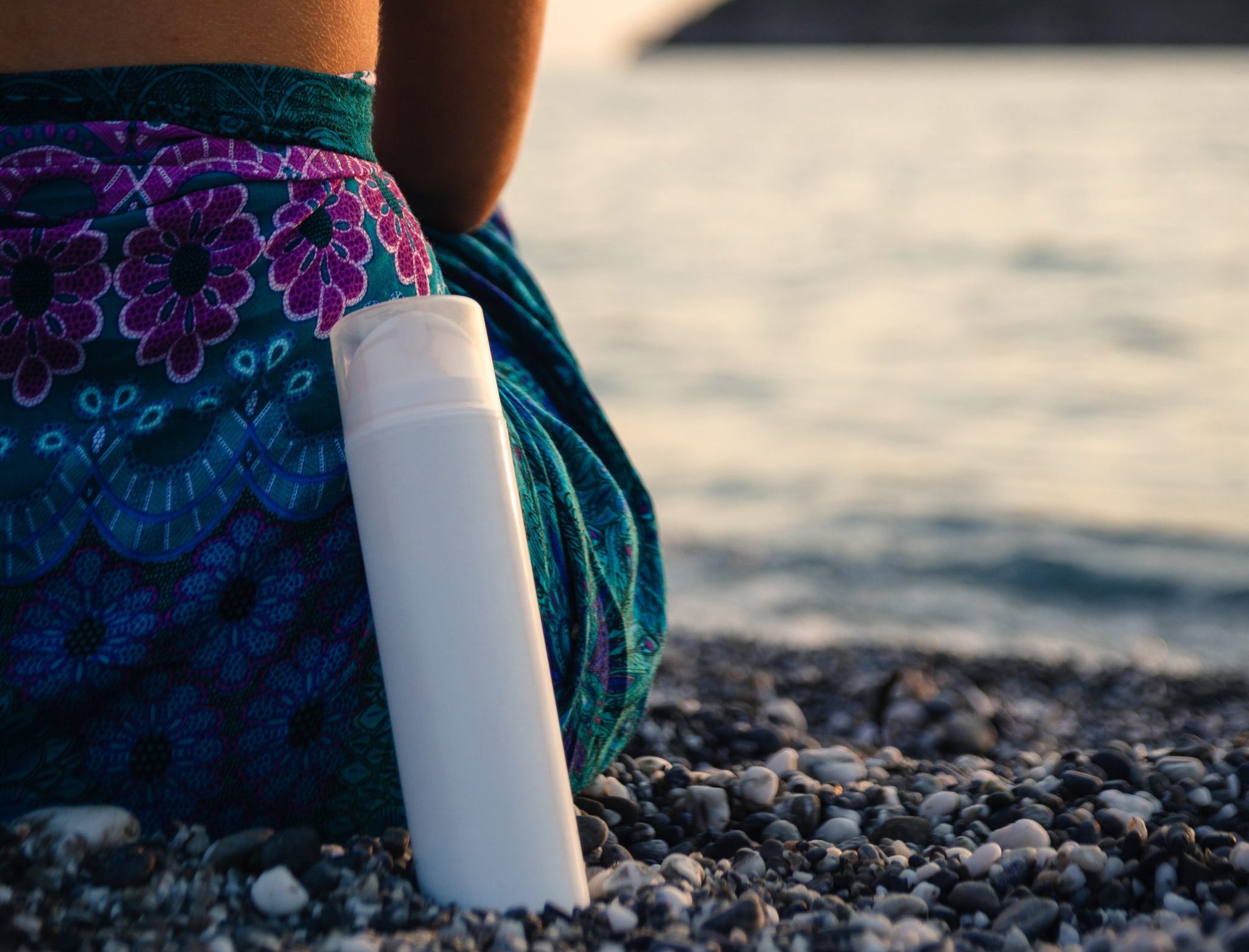
Healthy and all-natural sunscreen options
We all understand the importance of sun protection. From avoiding painful (and embarrassing) burns, to preventing cancer in ourselves and our children, sunscreen is an important part of healthy skin, healthy aging and healthy living. But with the concern raised over chemicals, nanoparticles and other ingredients found in commonly purchased sunscreens, many wonder if there is a way to protect our skin from both the sun and the sun protectants we put on it. Thankfully, there is more than one healthy and all-natural sunscreen out there that not only work, but are also safe for you and the environment.
From sun-worshiping to sun-careful
by Cris McCullough
In the 50’s, we grew up as sun worshipers! We played outside from dawn to dusk, chasing the ice cream truck and having adventures at the park. There was no such thing as sunscreen. During my teen years of the 60s, my girlfriends and I got together at Scarborough Beach, spread our blankets and slathered on baby oil in order to cultivate that perfect “Annette Funicello” tan and attract the “beach boys.” In later years, tanning beds were all the rage. An hour or two lying in what looked like a space capsule on steroids, and out you would pop, with a wonderfully even bronze color. What we wouldn’t do for that perfect “movie star” tan. Now, most of us are paying the price with melanomas and worse.
A history of sunscreen
Humankind has been creating photoprotection for over 6,000 years, according to the 2021 article, A History of Sunscreen, published in the Journal of Cosmetic Dermatology. However, evidence-based sunscreens have only existed for less than 100 years.
Though the idea of protecting the skin just might date back to the Egyptians, Chinese, and Japanese who prized pale complexions, the idea of sunscreen really didn’t catch on until after World War II. America Comes Alive reports that Coppertone brand founder, Benjamin Green, created his first sunscreen in 1944 using a sticky and stain-causing mixture of cocoa butter and red veterinary petrolatum that was issued to soldiers in World War II.
Regulatory bodies for sun protection, as well as the sun protection factor (SPF) was established in the 1970s to gauge protection against ultraviolet blue (UVB) light waves, and the first UVA filters were released in 1980 according to A History of Sunscreen.
However, as registered dietician Amber Worthen, notes in her write-up below, the chemicals and by-products included in common sun protection products have side effects.
Finding a healthy and all-natural sunscreen
By Amber Worthen, Licensed Dietician
We’ve all been told the importance of protecting our skin with sunscreen—for anti-aging purposes, preventing melanoma, avoiding development of hyperpigmentation, etc. But one question remains: could sunscreen itself be detrimental to our health?
Clean beauty is a hot topic right now. More and more studies continue to surface sharing the health risks specific ingredients in our personal care products can cause. At the top of the list: parabens, fragrance, oxybenzone, and phthalates (to name a few). Sunscreen is no exception. The more aesthetically pleasing product is what will sell. As a result, manufacturers add ingredients to the sunscreen to make it smell good, look nice, and be manufactured for a lower cost. After all, who doesn’t want an easy-to-apply, great smelling, affordable sunscreen? The problem comes from the effects these ingredients, such as nanoparticles, have once inside our bodies.
Most individuals apply sunscreen daily throughout the summer months, which creates a constant exposure to ingredients absorbed through the skin. According to a 2016 article published in Mini Reviews in medicinal chemistry, nanoparticles can cause oxidative stress, inflammation, damage to DNA, metabolic changes, and even cancer. Additional risks can include endocrine system disruption, skin irritation and thyroid suppression. More research is needed to determine how particles unable to be metabolized through the body impact us years from now. There is also a risk of inhalation when using spray sunscreen, as these chemicals and nanoparticles are inhaled directly into the respiratory system through the lungs.
Time for some good news: there are many sunscreen brands on the market today that do not contain these harmful ingredients. Many zinc-based sunscreens do not contain nanoparticles, and many avoid other chemicals of concern, as well. Eat To Live in Newport, RI carries both face and body sunscreen at their boutique. I also love to refer my clients to the Environmental Working Group’s Guide to Sunscreens, which is updated each year with the safest and cleanest sunscreen options on the market and which is an excellent resource for clean beauty to limit our chemical exposure.



 Nourish your skin this summer. Image via Antonio Gabola
Nourish your skin this summer. Image via Antonio Gabola  Nourish your skin this summer. Image via Antonio Gabola
Nourish your skin this summer. Image via Antonio Gabola